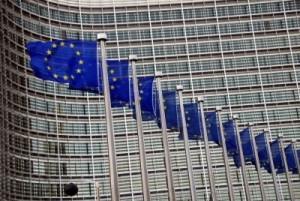Threat of shipping’s inclusion in EU Emissions Trading Scheme recedes
The European Parliament and member states of the European Union have agreed a revision of the EU’s ETS (Emissions Trading Scheme) from which shipping is excluded – for the time being at least.
The agreement, reached after long negotiations stretching into the early hours of Thursday morning, represents something of a vindication of IMO’s CO2 reduction strategy. The European Parliament had previously said it wanted to include shipping in the EU ETS from 2023 onwards if IMO had made insufficient progress in this respect and reached no global agreement to come into operation by 2021.
Now it appears that decision on any possible inclusion of shipping will be deferred until nearer 2023 itself, allowing the IMO to progress with its agreed two-part schedule for agreeing ambitious levels of CO2 reduction. The IMO ‘roadmap’ envisages drawing up an initial strategy by April 2018, and then adopting a revised strategy by Spring 2023.
“We think that this demonstrates confidence within the EU institutions in the current progress being made at the UN IMO to develop an ambitious strategy that will deliver additional CO2 reduction measures, consistent with the shipping industry’s own vision of zero emissions, as soon as possible,” commented Simon Bennett, ICS director of policy, speaking from the COP23 climate change conference in Bonn.
“We understand that the date which the EU has agreed for when the European Commission will next closely examine the progress that has been made globally is consistent with those time lines agreed by all IMO Member States,” he added. Bennett explained that the ICS (International Chamber of Shipping) hopes that no market-based measures will need to be introduced after 2023 to incentivise reduction of shipping’s emissions, for fear this might distort competition, but if pressed would prefer a global bunker fuel levy to an ETS.
Tratto da Seatrade Maritime Review
Aiutiamo le aziende a risparmiare sui costi di trasporto
Facs offre consulenze professionali e auditing sulla logistica della vostra impresa
